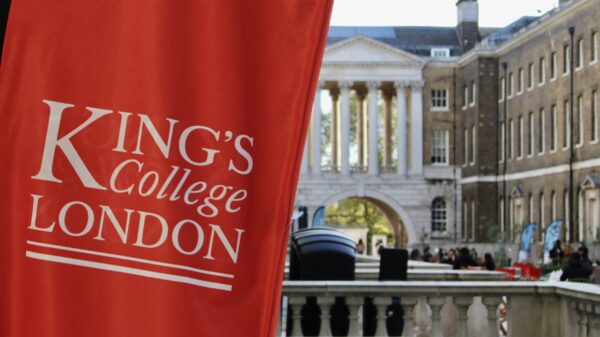Comment Editor Asher Gibson argues the UK government ban on teaching “anti-capitalist” texts shows a loss of power over the political agenda.
The Department for Education (DfE) recently announced orders for schools not to use teaching resources that express “a desire to end capitalismâ€, labelling them advocations of an “extreme political stance†and equating them with opposition to free speech, antisemitism, and endorsements of illegal activity.
Such a move should receive multipartisan criticism. It is antithetical to the free speech it supposedly advocates for and, put into effect, would exclude a wide range of influential British authors like Charles Dickens, George Orwell, H. G. Wells, and J. B. Priestley from the curriculum.
That isn’t what interests me.
What interests me is that this is not a show of strength, but evidence of a shift in the UK political agenda and an old order desperately holding onto its slipping monopoly on power.
The History
In 1979, when academics scrambled to define the hidden forms of power uncovered by WWII, Steven Lukes linked “power” to the ability to determine what topics enter the political sphere, what is defined as “political†at all, and what people believe their political interests to be.
One decade on, the UK political agenda was stuck firmly in “capitalist realism”. Neoliberal capitalism had been gradually positioned by first-world leaders Margaret Thatcher and Ronald Reagan as the only viable option for economic governance.
Tony Blair’s landslide victory in 1997 entrenched this further, producing an opposition that found replicating its other to be an effective political strategy.
This began to change when Jeremy Corbyn became the leader of the Labour party, and the more radical, marginalised sides of the left became mainstream again. Stripping the Conservatives of a majority in 2017, his leadership faced a vicious backlash from centrists of his party. A combination of internal sabotage, accusations of antisemitism, and the ex-leader’s approach to Brexit helped to bring his leadership to an end.
On December 12, 2019, the Conservative party gained a majority once again. Kier Starmer replaced Corbyn as Labour leader, and British politics seemed to return to the status quo.
Had the story ended here, restricting “anti-capitalist” texts from the curriculum would be unnecessary. The Conservatives would have controlled the agenda. With time, their arguments would have been quietly side-lined by “capitalist realism†once again.
But then came the Coronavirus.
For 3 long months, the economy ground to a halt because its logic could no longer function. Most could not work for the means of their survival – money to buy food, water, shelter – without simultaneously risking their lives by being exposed to the virus. A decade of underfunding to the NHS then came back to bite the country when it was most vulnerable.
Once-normalised individualism evolved into a movement of anti-lockdown protesters and “anti-maskers” vying for their rights to not wear a mask, to carry on as if the virus was not there, to undermine the communal right to bodily safety. The mindset behind “mine protects you, yours protects me†was not re-embedded into Britain’s political lexicon in time.
What this means
What once was seen as the only working option has had its logical and functional flaws exposed to thousands of people, and the Conservatives are initiating damage control.
By censoring texts that might make young people curious about what other types of governance are possible, they are trying to claw back the power over the political agenda they once had.
The problem is that it cannot work. Monopoly over political agenda relies on de-platforming ideologies that are too far removed from one’s own. By even attempting a strategy like this, the government has thrown these texts and their arguments back into the political ring, making them fair game for the very discussion they wanted to avoid.
In fact, I suspect that by begging the question, “why have anti-capitalist texts been banned? What is it that they don’t want us to see?†they may well have incentivised more young people to read these texts than would have otherwise. They are people with access to a free, uncensored internet who are already producing their own grassroots political movements that are often critical of capitalism, such as Extinction Rebellion and Black Lives Matter.
It may be a long time until the next General Election, but these young people will soon be voters. They carry the burden of two “once-in-a-lifetime†economic recessions and the environmental crisis, the results of the flawed system of social isolation and relentless material consumption the Conservatives aim to protect.
All they have demonstrated is that they know it is in danger and they are afraid.
It will be interesting to see what happens in the years to come.



















